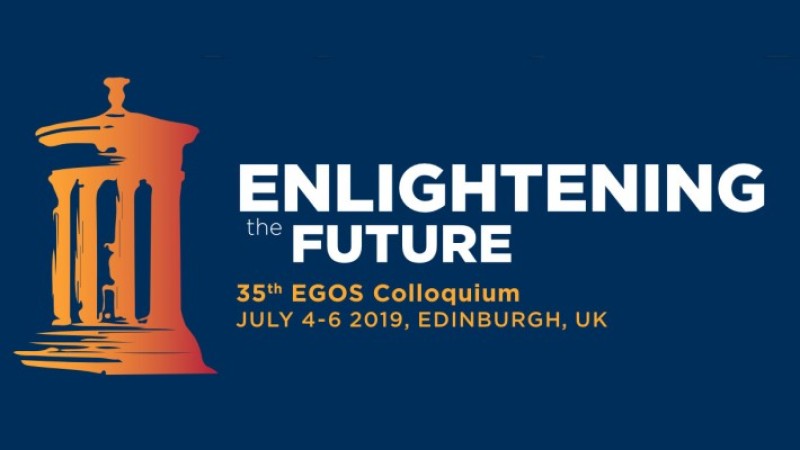Sub-theme 26: The Unsettled Humanities: (Anti-)Humanism, Fictionalization and Organizational Speculation [merged with sub-theme 68]
Call for Papers
In the specially commissioned introduction to the 2016 edition of Woman on the Edge of Time, published in celebration
of the book’s 40th anniversary, Marge Piercy (2016) writes:
“Feminist utopias were created out of a hunger for what we didn’t have at a time when change felt not only possible but probable. Utopias came from the desire to imagine a better future when we dared to do so. When our political energy goes into defending rights, and projects we won and created now under attack, there is far less energy for imagining fully drawn future societies we might wish to live in.”
It has been the fundamental rule of scholarship that social and organizational analysis
must have some kind of normative horizon against which progressive action can orient itself and social movements assessed.
To say ‘not this!’ assumes some kind of answer to the questions ‘what then?’ or ‘where then?’ Yet, does the perceived societal
impotence that Piercy so eloquently describes not also haunt the field of organization studies? Indeed, what has happened
to our speculative ideas of the future?
We want to encourage potential contributors to this sub-theme to
ask how the literary imagination can provide different horizons for organization studies anno 2019 as it reflects
on the present and looks toward the future. From Thomas More’s Utopia onwards, the provocation of speculation has
always been similar: could you, the reader, actually live within such a world described? The book closes and the questions
start. The same goes for most organizational analysis. As Graham Harrison (2016) remarks, “… to label a political argument
utopian is in part to condemn it”. Any political ideology can be presented in utopian terms, a phantasmagoria in Walter Benjamin’s
sense of the word (Cohen, 1989). And yet the book opens again precisely at this moment. So, too, all organizational scholarship.
Can we still create spaces within and from which we can formulate critique and enact alternatives? Can we still destabilize
somehow the fantasy of the ‘obvious evident’, provoke “a momentary disconnection from a certain kind of reality” (Bolaño,
2007, p. 10) and find possibilities for expression that have not yet been explored?
We see speculation as
essential for keeping open the possibility of what is ‘yet-to-come’ which, in German as in French, is the name assigned to
the English word ‘future’: Zu-kunft, a-venir. For Benjamin, the possibility of a future that is a genuine
time-to-come rests on the redemption of past and present from the ideological forces – what he calls ‘decisive historical
interests’ – that have distorted it. In order to discern the outlines of those “decisive historical interests” of the present
moment we need to try and “retain the image of history in the most inconspicuous arrangements of existence, in its detritus,
as it were” (Benjamin & Scholem, 1989, p. 165). In practice, this means that the ostensibly ‘unimportant’ elements in
any epoch must be re-valued in such a way as to bring about a displacement of the angle of vision and a disruption of our
horizon of expectation, something which Jameson (2009, p. 515) referred to as “directed distraction”. We believe it is precisely
the literary imagination that offers us the “yet-to-be-imagined formation of an idea of transformability” (Draper, 2012) and
thus helps us to (re)consider what Organization Studies can still do in 2019.
Potential contributors are
encouraged not to oppose reality and fiction in the way of the naïve realist. Rather, they will consider Kathleen Stock’s
(2017) invitation to handle the fictional imagination realistically, and Fredric Jameson’s (2009) exhortation to think fiction
and reality together, thus bringing to the fore the dialectic that drives the organization of our social world. The imagination
of possible worlds, within both the analytic and the continental philosophical traditions, has long been recognised as much
more than a fanciful instance of mis-incentivised idleness.
And so it shall be treated here. Fiction always
already stipulates “what is seen and what can be said about it, around who has the ability to see and the talent to speak,
around the properties of space and the possibilities of time” (Rancière, 2004, p. 13). Organizational scholarship stipulates
along remarkably similar lines, and contributors to this sub-theme will bring such facts into the open within the pieces they
produce. Contributions will explore the potential for fiction to enter the place where recounting stops and speculation begins
without succumbing to mere storytelling, on the one hand, or to bare empiricism, on the other.
References
- Benjamin, W., & Scholem, G. (1989): The Correspondence of Walter Benjamin and Gershom Scholem, 1932–1940. New York: Schocken Books.
- Bolaño, R. (2007): The Savage Detectives. London Picador.
- Cohen, M. (1989): „Walter Benjamin’s phantasmagoria.“ New German Critique, 48, 87–107.
- Draper, S. (2012): Afterlives of Confinement: Spatial Transitions in Postdictatorship Latin America. Pittsburgh: University of Pittsburgh Press.
- Jameson, F. (2009): Valences of the Dialectic. London: Verso.
- Harrison, G. (2016): “The purposes and powers of utopia.” openDemocracy, available at: https://www.opendemocracy.net/beyondslavery/graham-harrison/purposes-and-powers-of-utopia.
- Piercy, M. (2016 [1976]): Woman on the Edge of Time. London: Del Rey.
- Rancière, J. (2004): The Politics of Aesthetics. London: Continuum.
- Stock, K. (2017): Only Imagine: Interpretation and Imagination. Oxford: Oxford University Press.


